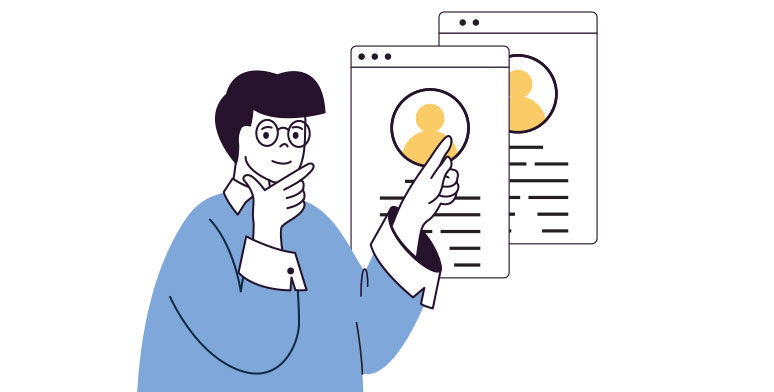Sample Questions for Behavioral Interviews
Understanding how candidates have handled situations in the past helps assess how they may respond to your needs and problems in the future. Let’s review specific questions you can ask to assess candidate experiences in a behavioral interview.
- Teamwork and Collaboration:
- Describe a time when you worked on a team project. What was your role and how did you contribute to the team's success?
- Tell me about a conflict you had with a team member. How did you resolve it? (You can substitute client, boss or customer, depending on role.)
- Problem-Solving:
- Give me an example of a challenging problem you faced at work. What was the situation? What steps did you take to solve it? What was the outcome and impact?
- Describe a situation where you had to make a decision with limited information. What was your approach and what was the outcome?
- Adaptability:
- Share an experience where you had to adjust your plans due to unexpected changes. How did you handle it?
- Tell me about a time you had to learn something new quickly. What was the situation and how did you manage?
- Leadership:
- Describe a situation where you took the initiative to lead a project or team. What challenges did you face and how did you overcome them?
- Tell me about a time you motivated a team (or colleagues) during a difficult time.
- Communication:
- Give me an example of a time when you had to explain a complex concept to someone who was unfamiliar with the topic. How did you ensure they understood and knew what to do next?
- Tell me about a situation where you received constructive criticism. How did you respond and what did you learn from it?
- Time Management:
- Describe a time when you had multiple deadlines to meet. How did you prioritize your tasks?
- Share an experience where you (or you and your team) missed a deadline. How did you address it? What did you learn from that experience?
- Customer Service:
- Tell me about a time you dealt with a difficult customer. How did you handle the situation?
- Provide an example of how you went above and beyond to meet a customer’s needs, without compromising organizational standards or exceeding costs.
- Goal Setting and Achievement:
- Describe a professional goal you set for yourself. What steps did you take to achieve it and what was the outcome? What surprised you in the process?
- Can you give an example of how you tracked your progress toward a specific goal?"
Notice the pattern here? A great general model for behavior interview questions is: “Describe a time what you needed to exercise or show (fill in behavior). Describe the situation, what happened, what the result was and what the broader impact was.” Use this as a starting point to draft questions for your key desired behaviors. Crafting these open-ended questions that require candidates to describe or tell you about an experience helps uncover a candidate’s problem-solving skills, adaptability and overall fit for your organization.
Case Study: Launching Behavioral-Based Interviewing
When Mimi took over as the hiring manager for the customer service department, she noticed a troubling pattern—new hires who often struggled to meet performance expectations, even after completing the company’s training program. Some had great résumés, but once on the job, they lacked the problem-solving skills or adaptability needed for the fast-paced environment.
Mimi acknowledged that in the past, interviews had been broad and hypothetical: Tell us about your resume, strengths, development needs, how you might handle XYZ and such.
She shifted her approach from hypothetical questions to behavioral-based interview questions. She started asking candidates to provide real-life examples of how they handled past challenges like what would be faced at the company. She found this approach gave a clearer picture of their true abilities. She trained her supervisors to craft questions like, “Tell me about a time you had to deal with an angry customer,” and “Describe a situation where you had to quickly learn something new on the job.”
With the new method in place, interviews became more structured and revealing. One day, a candidate with an impressive résumé faltered when asked about a time they resolved a customer complaint, offering vague answers. Meanwhile, another applicant, whose experience was less conventional, gave a compelling story of how she de-escalated a difficult customer interaction. Mimi and her team saw the value of this approach in action.
Within months, new hire performance and retention improved significantly. Behavioral-based interviewing transformed hiring ensuring candidates had the right skills to thrive within the organization.
Next Steps with Pryor Learning
Effectively using behavioral-based interviewing requires knowing what you need in a position. Pryor’s extensive library of training helps you identify and explore these desired behaviors in more depth.












